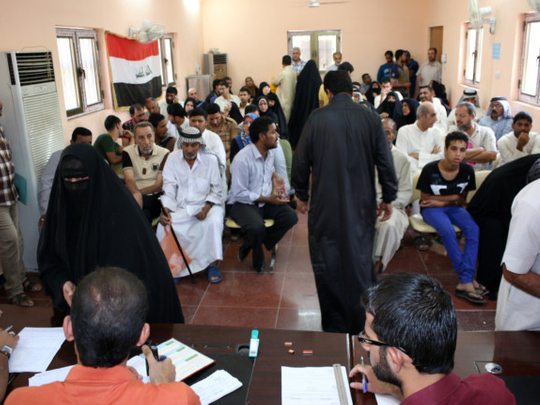
Mosul When Islamic State of Iraq and the Levant (Isil) fighters first seized Iraq’s city of Mosul, life improved for many residents. But some now say the economic and cultural cost of militant rule is beginning to bite.
The bomb attacks, shootings and kidnappings that kept many residents of Iraq’s second city in a constant state of fear all but stopped when Isil took control six weeks ago.
The many streets closed off by Iraq’s Shiite-dominated security forces, despised by many in the mainly Sunni city, were reopened. Checkpoints were dismantled and heavy-handed policing toned down.
“When the army left and the gunmen came it was the first time we could breathe. Before I had to wait two hours in traffic just to get to work because of all the checkpoints. Now I can get to my shop in 10 minutes,” said Mohammad Azhar, 32.
But as the euphoria dissipates after the Isil’s June 10 capture of the city, the costs of living in the heart of their newly declared “caliphate” are starting to pile up.
Fuel is becoming scarce, electricity intermittent at best, and goods that violate the Islamists’ puritanical version of Islam are disappearing from the shelves.
Residents who have not already fled now wait in fear of yet more restrictions on their lifestyle.
“As time goes on we’re surprised by new laws. For example jeans are banned, any fashion is banned. T-shirts with numbers and letters on them are banned. Women must cover their heads, and dark colours are preferred for clothes,” said a civil servant who declined to be identified.
Isil has taken an incremental approach to enforcing its writ.
There have so far been no verified reports of brutal public executions of the kind Isil has carried out in the Syrian half of the “caliphate”.
Small groups of black-clad Isil members patrol Mosul’s streets on foot, while others cruise around in vehicles appropriated from the Iraqi police, with a new “Islamic Police” logo.
Playing cards and dominoes has been prohibited and hookah pipes have been banned, the civil servant said. Smoking is also forbidden, but according to multiple sources the rule is not strictly enforced, although new deliveries of tobacco into the city have been blocked.
So far, one of the most painful aspects of the Islamists’ occupation has been economic.
“The gunmen told me and other neighbouring shops to quickly sell our products, which are women’s clothes of different styles, fabrics, colours and not to display them at the front of the store,” said Zayed Mahmoud, 30.
“We’ve lost a lot of money as we’ve been forced to sell very cheap. I’ve lost about $30,000 (22,000 euros).”
Now all he is allowed to sell are face veils and different types of all-enveloping abayas, for which there is - at least for now - little demand in Mosul.
The civil servant said he and other government employees had not been paid, and that the city’s wealthy residents had already fled. Those who remain are saving their cash and spending only on necessities.
Further depressing the economy, the fuel shortage combined with security problems has hampered trade with other Iraqi regions and nearby Turkey and Syria, a painful development for a city that has long been a commercial hub.
Imported goods, including medical, are scarce, although grocers report roaring trade.
“The demand is due to the falling prices of fruit and vegetables because of the lack of fuel, of electricity, which stops the grocers from storing their goods... or taking them to other provinces,” said grocer Abu Ali.












